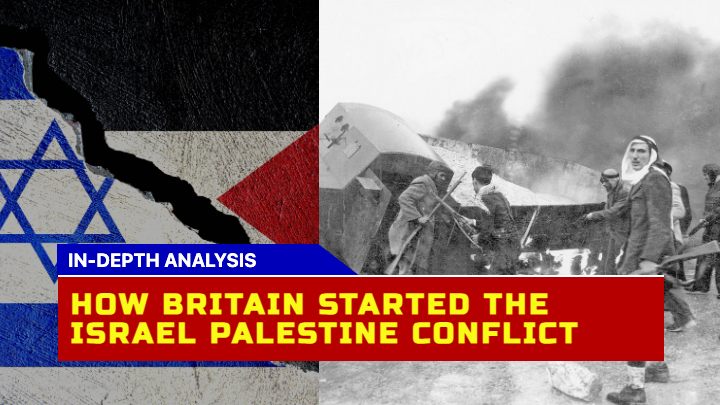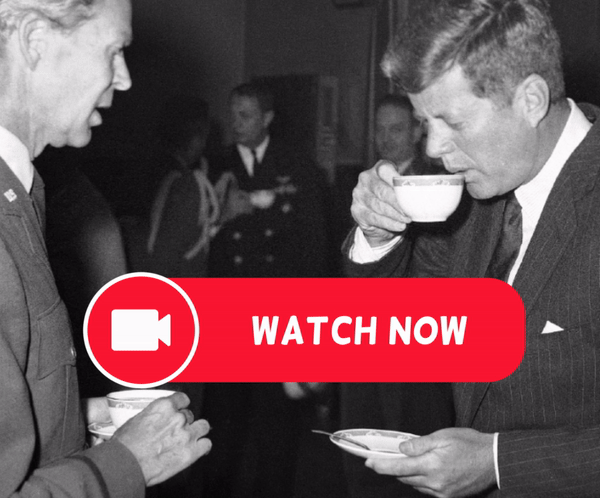In the midst of the recent turmoil in the Middle East, the stark hypocrisy of Western nations towards the conflict between Israel and Gaza has emerged as a troubling and stomach-turning spectacle. The suffering of Israeli civilians is undoubtedly tragic, but the disproportionate focus on their plight compared to the enduring agony of Palestinian civilians in Gaza is nothing short of a moral crisis.
The recent jailbreak and subsequent attack by Palestinians from Gaza have been described as “unprecedented” by Western media. While Israeli Prime Minister Benjamin Netanyahu portrays it as a “cruel and evil war,” the reality is that the Palestinians have endured decades of relentless oppression. The breakout represents a desperate attempt by those confined within the coastal enclave to hurt their oppressor, as they have faced continuous suffering since the imposition of Israel’s blockade in 2007.
The Price of Palestinian Resistance
Predictably, as Netanyahu warned, the Palestinians will pay a heavy price for their audacity in resisting their confinement. However, Western sympathy for the suffering of Palestinian civilians is notably absent. The term “Israeli retaliation” will be used to obscure and justify the immense suffering inflicted on the Palestinian population, just as it has for many years.
Amidst discussions of Israeli intelligence “blunders,” the real lesson here is the stark indifference exhibited by the international community when it comes to the suffering of Palestinians in Gaza. Two million Palestinians have been held hostage in an open-air prison for nearly two decades, subjected to a “starvation diet” and frequent Israeli bombings.

Israel’s Military Strategy and the Forgotten Victims
Israel’s military strategy, known as the “Dahiya doctrine,” involves the destruction of vast areas of Gaza, effectively returning it to the Stone Age. Israeli snipers have intentionally targeted nurses, youngsters, and even people in wheelchairs during protests. The question arises: why has the suffering of Palestinian children, who have died in Israeli bombing campaigns over the past 15 years, not garnered the same international concern as Israeli civilian casualties?
The sudden horror expressed by Western governments and media in response to Palestinian resistance lays bare the concealed racism that often disguises itself as moral concern. By turning a blind eye to Israel’s brutal treatment of Gaza’s population, Western allies have allowed Israel to perpetuate outrageous lies.
Collective Punishment and Selective Morality
Israel’s practice of turning off the electricity in Gaza as a form of “retaliation” is nothing short of a war crime. Western officials readily condemn similar actions in other conflicts but seem blind to the parallels here. This selective morality is a testament to the enduring hypocrisy surrounding the Israel-Palestine conflict.
Despite decades of confinement and oppression, the human spirit in Gaza has proven unbreakable. Palestinians have resorted to various forms of resistance, from building tunnels to firing rockets. Now, they have staged a daring escape, and while Israel will undoubtedly respond with massive bombardments, the Palestinians’ desire for freedom and dignity will persist.
Israel’s Western patrons have indulged the nation for too long, allowing it to maintain its oppressive policies. Despite the rhetoric of its current government, there is a consensus among Israelis that Palestinians must remain oppressed. Even the so-called opposition leaders are willing to support the military pounding of Gaza, perpetuating the belief that Palestinians must accept their permanent inferiority and imprisonment.

Unearthing the Secrets: The Palestine-Israel Conflict and British Double-Dealing
The Palestine-Israel conflict is a complex and deeply entrenched issue that has captured the world’s attention for decades. Many perceive it as a modern-day clash of civilizations, pitting Palestinians against Jews in a struggle for control over the “Holy Land.” However, the origins of this conflict trace back to a web of intrigue and double-dealing during the First World War, where conflicting promises and imperial ambitions sowed the seeds of discord that continue to shape the Middle East’s destiny.
In this article, we will delve into the controversial and dramatic narrative of the Palestine-Israel conflict. We will uncover the hidden layers of history, exposing the role of British imperial interests, secret agreements, and the pursuit of power. This conspiracy theory, while shrouded in secrecy, sheds light on how a global war and geopolitical maneuvering in the early 20th century set the stage for the ongoing strife between Palestinians and Jews.
The Great Game of Empires
The story begins with the First World War, where the British and French empires had grand ambitions to carve up the declining Ottoman Empire. These imperial powers believed that such a move would secure their dominance and balance their imperial interests. However, their designs left little room for the Turks, the Arabs, and others caught in the crossfire. The stage was set for a conflict of monumental proportions.
Related: 100+ tips to save money that many people are paying needlessly right now!
The British, in particular, played a pivotal role in the turmoil to come. They made promises of Arab independence while simultaneously supporting the establishment of a Jewish homeland in Palestine. These conflicting commitments sowed the seeds of future strife, as the British prioritized their geopolitical interests in the Middle East.
Britain’s Colonial Legacy in the Middle East
To understand the origins of the Palestine-Israel conflict, we must examine Britain’s colonial past in the early 20th century. King Edward VII presided over a vast British empire, with India serving as a crucial pillar of British global power. The Suez Canal, a vital waterway, was the gateway to India and a linchpin in Britain’s imperial strategy.
With strategic interests in mind, Britain had already annexed Egypt from the Ottoman Empire in 1882, and by 1914, Egypt had become the epicenter of British power in the Middle East. Britain’s presence in the region was pivotal for maintaining control of the Suez Canal and safeguarding its geopolitical position.
The Geopolitical Chessboard
As the First World War raged on, Britain found itself in a stalemate on the western front in Europe. The conflict had turned into a protracted bloodbath, and the British leadership sought alternative strategies to break the deadlock. The Middle East became a focal point in their global war effort.
The British devised a two-pronged approach: a military diversion to weaken the Central Powers and a web of secret diplomacy aimed at undermining the Ottoman Empire. These strategies revolved around Turkey, which was perceived as the Central Powers’ Achilles’ heel.

The Arab Revolt
Amid the shifting sands of alliances and imperial rivalries, the Arab world began to awaken to the call of nationalism. Arab intellectuals sought to reassert their cultural identity and desired independence from Ottoman rule. The Young Turks’ imposition of Turkish culture on the Arabs reignited their interest in their own heritage, leading to the emergence of Arab nationalism.
In 1915, British intelligence recognized the potential of the Arab nationalist movement as a tool to divert Ottoman forces. Britain and France began seducing local Arab leaders, promising them independence in exchange for their support against the Ottomans. The Arabs, lured by the prospect of self-rule, joined the Allies in what became known as the Arab Revolt.
The Sharif and the Hashemites
Sharif Hussein, a key figure in the Arab Revolt, emerged as a central player in the drama unfolding in the Middle East. As the ruler of the Hijaz in western Arabia, he believed that the British could help him achieve his territorial ambitions. The British, in turn, saw in Sharif Hussein a counterforce to challenge the Ottoman Sultan’s claim to the Caliphate, the leadership of the Islamic world.
Sharif Hussein’s role as a custodian of Islam’s holy places and his lineage from the family of the Prophet Muhammad, known as the Hashemites, further solidified his position. The British saw him as a means to challenge the Ottomans’ religious authority and advance their own interests.
Secret Agreements and Imperial Ambitions
As the war dragged on, Britain and France engaged in behind-the-scenes negotiations to determine the future of the Middle East. The infamous Sykes-Picot Agreement of 1916 carved up the region into spheres of influence, with Britain and France each securing their own territories. This secret deal further complicated the geopolitical landscape and foreshadowed future conflicts.
The Role of Zionism
The stage was set for a dramatic twist in the tale, as the British government sought to win the support of influential Jewish communities around the world. Facing dire circumstances on the Western Front and a crumbling Russian front, British Prime Minister Lloyd George believed that Jewish support could be the key to securing American intervention.
Related: Boom! California’s Deep State Hammered: A Whopping 8,000 Cuffed and Counting!
The British viewed the Jewish world as a powerful collective entity, and they sought to harness this perceived influence. Zionism, a burgeoning Jewish nationalist movement, aimed at establishing a Jewish state in Palestine, became a focal point in this strategy. Chaim Weizmann, a Zionist leader, lobbied the British government for support, leading to the issuance of the Balfour Declaration in 1917.
In a momentous declaration, British Foreign Secretary Arthur Balfour pledged support for the establishment of a “national home for the Jewish people” in Palestine. This declaration had far-reaching consequences, as it marked a turning point in the dynamics of the Middle East.
The Consequences of Imperial Machinations
The Palestine-Israel conflict, rooted in the double-dealing and imperial ambitions of the early 20th century, remains a divisive and contentious issue to this day. The dramatic events and secretive agreements that unfolded during the First World War cast a long shadow over the region, shaping its destiny and triggering a complex and ongoing struggle.
While this conspiracy theory sheds light on the geopolitical chessboard of the past, it also underscores the enduring impact of historical decisions on the present. Understanding the origins of the conflict is essential for seeking a path to peace and reconciliation in the Middle East, where the consequences of past intrigues continue to shape the lives of millions.
In the ever-evolving landscape of international politics, the Palestine-Israel conflict stands as a stark reminder of the enduring legacy of empire and the high-stakes game of power and diplomacy.
It is a story of promises made and broken, of nationalism and self-determination, and of a region caught in the crossfire of global ambitions.






